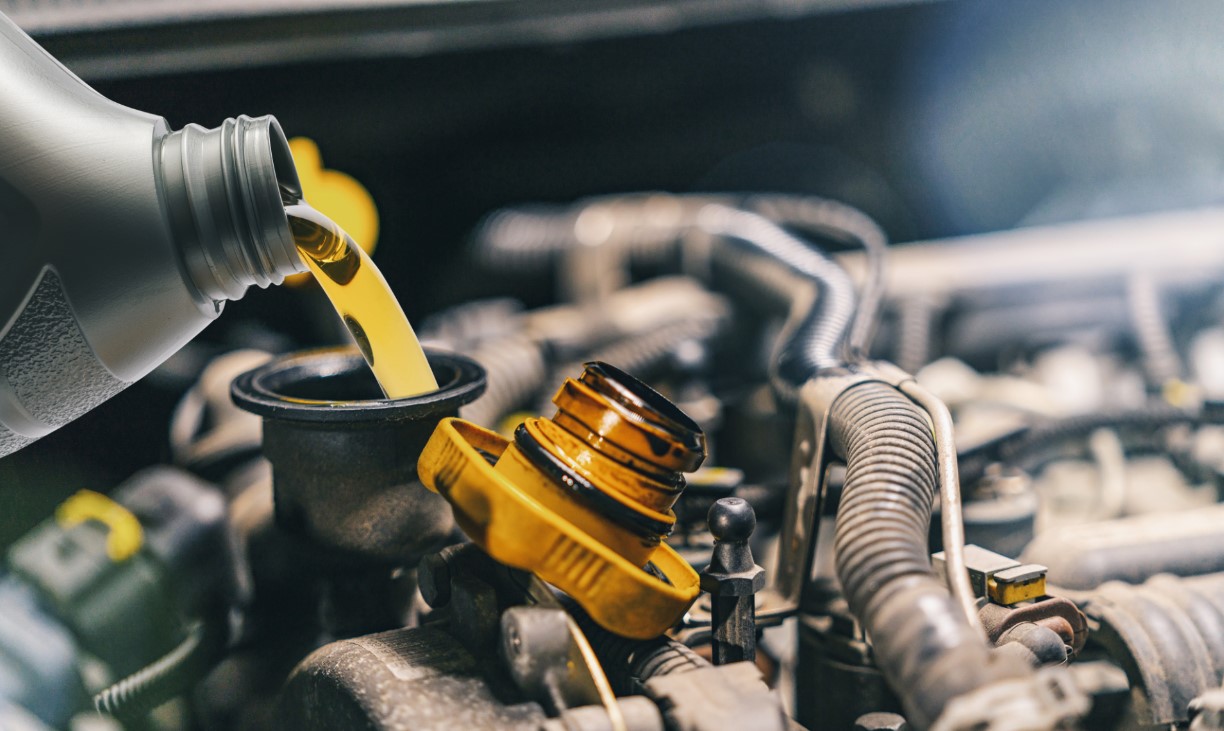Maximize Your Car'S Efficiency With Regular Oil Modifications
Preserving your lorry's performance is a diverse venture, with normal oil adjustments standing out as a critical aspect. Fresh engine oil plays a crucial duty in guaranteeing ideal lubrication, lowering friction, and preventing wear on necessary components. Many chauffeurs neglect the signs that indicate a need for an oil change, potentially compromising their vehicle's long life.
Relevance of Normal Oil Adjustments
While lots of automobile owners might overlook the significance of normal oil adjustments, ignoring this vital maintenance task can lead to severe consequences for engine efficiency and long life. Engine oil plays a crucial function in lubricating relocating components, minimizing friction, and protecting against getting too hot. Gradually, oil weakens due to direct exposure to warm and contaminants, which lessens its efficiency.
Failing to change the oil consistently can cause the build-up of sludge and debris, which can obstruct vital engine parts and result in increased wear. This not just jeopardizes engine efficiency yet can also cause expensive repairs or perhaps overall engine failure. Furthermore, old oil loses its capacity to reduce the effects of acids created during burning, which can bring about rust and more damages.
Furthermore, several vehicle producers suggest details oil change intervals, commonly based on gas mileage or time. In recap, normal oil changes are not merely a tip; they are a crucial component of accountable car upkeep that shields the engine and enhances overall efficiency.
Advantages of Fresh Oil
Transforming to fresh oil offers many advantages that straight enhance engine performance and efficiency. One of the main advantages of fresh oil is its remarkable lubricating residential or commercial properties. New oil decreases friction between engine elements, which not only reduces wear however additionally adds to smoother operation. This results in improved fuel efficiency, as the engine does not have to work as hard to overcome resistance.
Furthermore, fresh oil successfully cleanses the engine by suspending pollutants and avoiding sludge build-up. With time, oil comes to be contaminated with dirt, steel fragments, and burning results. On a regular basis changing oil makes certain that these unsafe materials are eliminated, promoting a cleaner and much healthier engine setting.
Additionally, fresh oil aids in optimal temperature level policy. It dissipates heat extra successfully, preventing getting too hot and possible damage to engine components. This is specifically crucial during peak performance scenarios, where warm buildup can harm engine performance.
Indications Your Oil Demands Altering
Engine oil is the lifeline of your car, and identifying when it needs transforming is essential for keeping optimal efficiency - Oil Change Lockhart. Numerous indications indicate that it's time for an oil adjustment, and remaining vigilant can prevent engine damages and pricey repair work
First, examine the color and uniformity of the oil. Fresh oil is commonly brownish-yellow and smooth, while old oil may show up dark and sandy, showing contamination and lowered efficiency. An adjustment in viscosity can additionally represent that the check here oil has actually damaged down and is no more appropriately lubricating engine elements.

An additional indication is the oil modification light on your control panel. This sharp offers as a pointer that the oil has reached its life expectancy or that there is an underlying problem requiring focus. In addition, unusual engine noises, such as knocking or ticking, may suggest inadequate lubrication as a result of degraded oil.
Lastly, if you observe oil places or pools under your vehicle, it may suggest a leakage that demands immediate evaluation and possible oil change. Being mindful to these indications will certainly guarantee your engine runs efficiently and effectively.
Selecting the Right Oil
Choosing the proper oil for your automobile is essential for ensuring optimal performance and longevity. Engine oils come in various types and viscosities, each formulated to meet specific requirements. The first factor to consider needs to be the supplier's referrals, which can commonly be found in the owner's guidebook. This advice will certainly guide you toward the appropriate viscosity grade, such as 5W-30 or 10W-40, which suggests the oil's density at different temperature levels.
Next, consider the sort of oil: traditional, synthetic, or a mix. Standard oil is stemmed from petroleum and appropriates for older automobiles, while synthetic oil offers premium security and performance for modern-day engines, particularly under severe problems. Synthetic blends incorporate the benefits of both and are often an economical option.
In addition, try to find oils that meet sector standards, such as API (American Oil Institute) or ACEA (Organization des Constructeurs Européens d'Automobiles) accreditations. These indicators make certain that the oil has been examined for high quality and efficiency. Eventually, picking the best oil not only boosts engine effectiveness yet also adds to the overall wellness of your vehicle, leading the way for smoother driving experiences.
Oil Modification Regularity Recommendations

Aspects influencing oil adjustment frequency consist of driving conditions, such as stop-and-go website traffic, extreme temperature levels, and pulling heavy tons. Under severe problems, it may be sensible to alter the oil a lot more frequently to browse this site avoid engine wear. In addition, some contemporary lorries come geared up with oil life surveillance systems that provide individualized recommendations based upon driving habits, which can additionally optimize the oil modification schedule.
It's critical to consult your owner's guidebook for particular referrals tailored to your car. Sticking to these guidelines not only maintains engine health however also improves gas efficiency and minimizes exhausts. To conclude, routine oil changes, timed properly based upon various elements, are a basic facet of car upkeep that can dramatically impact performance and long life.
Verdict
